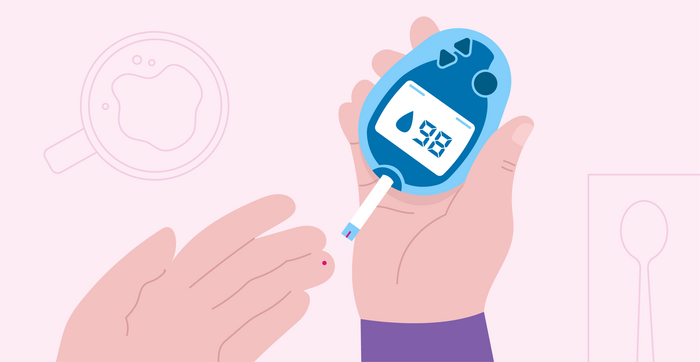
Key points
- Diabetes is a chronic condition that requires continuous self-care to prevent complications like kidney damage and heart disease. This includes learning about the condition, understanding the differences between type 1 and type 2 diabetes, and identifying lifestyle behaviors that may increase your risk.
- Regular exercise is crucial for managing diabetes as it helps regulate blood sugar, blood pressure, cholesterol, and hormone levels. Gradually increasing physical activity, even starting slowly, can have a significant impact on your health.
- Modifying your diet is another essential step in managing diabetes. Eliminate foods high in sugar, sodium, and unhealthy fats, and increase intake of nutrient-rich whole foods. This can help regulate blood sugar levels and reduce obesity, a risk factor for diabetes.
- Daily foot inspection is recommended as people with diabetes are prone to developing foot sores and ulcers due to diabetic neuropathy. Catching and treating these issues early can prevent complications like infection, gangrene, and amputation.
- Regular monitoring of blood sugar and blood pressure levels is essential for people with diabetes. This can help control blood sugar levels, identify potential causes of fluctuations, and ensure the effectiveness of diabetes medications. Regular eye exams are also crucial to prevent, detect, and treat diabetic retinopathy, a condition that can lead to vision loss.
Default Transparent Webp

Diabetes is a chronic condition that requires careful management to prevent complications including kidney damage and heart disease. If you are living with diabetes, it’s important to practice self-care around the clock so you can stay healthy and prevent your condition from advancing.
The following diabetes self-care tips can help you improve your symptoms and quality of life. If you need additional help with managing diabetes, use Solv to find diabetes testing locations in your area.
Learn the ins and outs of diabetes
If you’ve recently been diagnosed with diabetes, the National Institutes of Health (NIH) recommends learning as much as you can about your condition so you can become the primary expert about your personal health. Learn the difference between type 1 and type 2 diabetes, and identify any lifestyle behaviors you practice that may have increased your risk for diabetes. This can help you determine whether you need to make any necessary changes and improvements to your lifestyle, such as exercising more frequently or eating healthier foods.

Increase your activity level
Exercising regularly is very important, as exercise can naturally help regulate your blood sugar, blood pressure, cholesterol, and hormone levels, according to the National Kidney Foundation. Exercise can also help you maintain a healthy weight and lose excess weight that may have been caused by a combination of inactivity and unhealthy food choices.
Start increasing your physical activity level day by day, even if it means starting out slowly. The National Kidney Foundation offers examples such as taking the stairs instead of the elevator or escalator, and parking farther away from destinations so you can spend more time walking. It can be helpful to do the exercises you truly enjoy so you don’t come to resent being active. Dancing, gardening, and hiking are examples of fun exercises that can help you stay active and healthy.

Modify your diet
According to the NIH, obesity and being overweight are risk factors for diabetes. These conditions are often caused by a combination of poor nutrition and lack of physical activity. The next diabetes self-care tip you can practice after starting an exercise routine is to make healthy changes to your diet.
According to the NIH, it may be helpful to start by eliminating foods in your diet that are high in sugar, sodium, and unhealthy fats, as these foods can upset your hormonal imbalance and increase the risk of insulin resistance. This includes processed foods like cakes, cookies, frozen meals, and meats like sausages, pepperoni, and bacon.
Next, increase your intake of whole foods that are loaded with nutrients that can naturally regulate your blood sugar. The NIH recommends including fruits, vegetables, nuts, seeds, low-fat dairy, poultry, fish, and whole grains in your diabetes diet.

Inspect your feet daily
According to the NIH, people who are living with diabetes are highly prone to developing foot sores and ulcers. This can occur due to diabetic neuropathy, which is a type of nerve damage caused by having chronically high blood sugar levels.
Over time, uncontrolled blood sugar can damage your nerves, which can make it more difficult for you to feel pain and sores on your feet. It can also damage your blood vessels, which makes it more difficult for wounds to heal. According to the NIH, many times, wounds in people with diabetes heal very slowly or never heal at all—increasing the risk for complications including infection, gangrene, and amputation.
The Department of Nursing at the University of Southern California recommends inspecting your feet every day. This is an important part of diabetes care that can keep you mobile and reduce your risk for amputation. Inspecting your feet can help you detect sores, puncture wounds, and other foot problems right away so they can be treated by your doctor promptly.
Other steps you may consider include washing your feet daily, wearing properly fitting shoes, wearing socks and shoes at all times, and trimming your toenails.

Monitor your blood sugar level daily
Many doctors recommend checking your blood sugar level at least once a day. According to the NIH, doing this can help you control your blood sugar level and identify potential causes of highs and lows such as certain foods, activities, and events. It can also help you determine whether your diabetes medications are working as expected, or if you need to see a doctor to discuss your current treatment plan.
Ask your doctor how often you should be checking your blood sugar based on your condition and lifestyle. Your doctor may recommend checking it multiple times a day if you are newly diagnosed, have started a new diabetes medication, or are highly active in sports or other physical activities.

Check your blood pressure daily
People who are managing diabetes are two times as likely to have a high blood pressure than those without diabetes, according to Johns Hopkins Medicine. Additionally, people with both diabetes and high blood pressure are four times as likely to develop heart disease than someone without either condition. High blood pressure increases the risk of stroke, aneurysms, and dementia.
Checking your blood pressure every day is highly important if you are living with diabetes. The National Institutes of Health says that the blood pressure goal for most people with diabetes is at or below 140/90 mmHg.
Ask your doctor what your blood pressure goal should be, and work toward meeting that number every day. According to the CDC, factors that contribute to high blood pressure include physical inactivity, a high-sodium diet, tobacco use, and heavy alcohol use. Consider using an at-home blood pressure monitor to check your blood pressure and monitor it daily. At-home blood pressure monitors are relatively inexpensive and can be purchased from a wide range of drugstores and retailers.

Get an annual eye exam
Uncontrolled diabetes increases your risk for blood vessel damage in the eyes, also known as diabetic retinopathy. The NIH reports that diabetic retinopathy can lead to blurred or partial vision, or to blindness when not caught and treated early on. Diabetes is the primary risk factor for this eye condition, though other risk factors include smoking, high blood pressure, and high cholesterol.
Visit your eye doctor regularly for an eye exam, and ask how often you should be screened if you have diabetes. Most doctors, including the NIH, recommend having a yearly eye exam to prevent, detect, and treat diabetic retinopathy.
If you think you may have diabetes, use Solv to find a diabetes test provider in your area. Solv can provide you with a list of highly-rated diabetes test providers and the opportunity to make a same-day appointment at a nearby walk-in clinic. Solv’s mission is to make everyday healthcare easier for you and your family.
FAQs
What is the importance of self-care in managing diabetes?
Self-care is crucial in managing diabetes as it helps prevent complications such as kidney damage and heart disease. It involves practicing healthy habits around the clock to stay healthy and prevent the condition from advancing.
How can I increase my knowledge about diabetes?
The National Institutes of Health (NIH) recommends learning as much as you can about your condition. Understanding the difference between type 1 and type 2 diabetes, and identifying any lifestyle behaviors that may have increased your risk for diabetes can help you make necessary changes and improvements to your lifestyle.
How does increasing physical activity help in managing diabetes?
Regular exercise can naturally help regulate your blood sugar, blood pressure, cholesterol, and hormone levels. It also helps maintain a healthy weight and lose excess weight that may have been caused by a combination of inactivity and unhealthy food choices.
What dietary changes can be beneficial for someone with diabetes?
It's recommended to eliminate foods high in sugar, sodium, and unhealthy fats from your diet as they can upset your hormonal balance and increase the risk of insulin resistance. Instead, increase your intake of whole foods loaded with nutrients that can naturally regulate your blood sugar. These include fruits, vegetables, nuts, seeds, low-fat dairy, poultry, fish, and whole grains.
Why is it important for people with diabetes to inspect their feet daily?
People with diabetes are highly prone to developing foot sores and ulcers due to diabetic neuropathy, a type of nerve damage caused by having chronically high blood sugar levels. Inspecting your feet daily can help detect sores, puncture wounds, and other foot problems early so they can be treated promptly.
How often should I monitor my blood sugar level?
Many doctors recommend checking your blood sugar level at least once a day. However, your doctor may recommend checking it multiple times a day if you are newly diagnosed, have started a new diabetes medication, or are highly active in sports or other physical activities.
Why is it important to check blood pressure daily for someone with diabetes?
People managing diabetes are twice as likely to have high blood pressure than those without diabetes. High blood pressure increases the risk of stroke, aneurysms, and dementia. Checking your blood pressure daily can help you control it and meet your blood pressure goal.
How often should I get an eye exam if I have diabetes?
Most doctors, including the NIH, recommend having a yearly eye exam to prevent, detect, and treat diabetic retinopathy, a condition that can lead to blurred or partial vision, or to blindness when not caught and treated early on.










